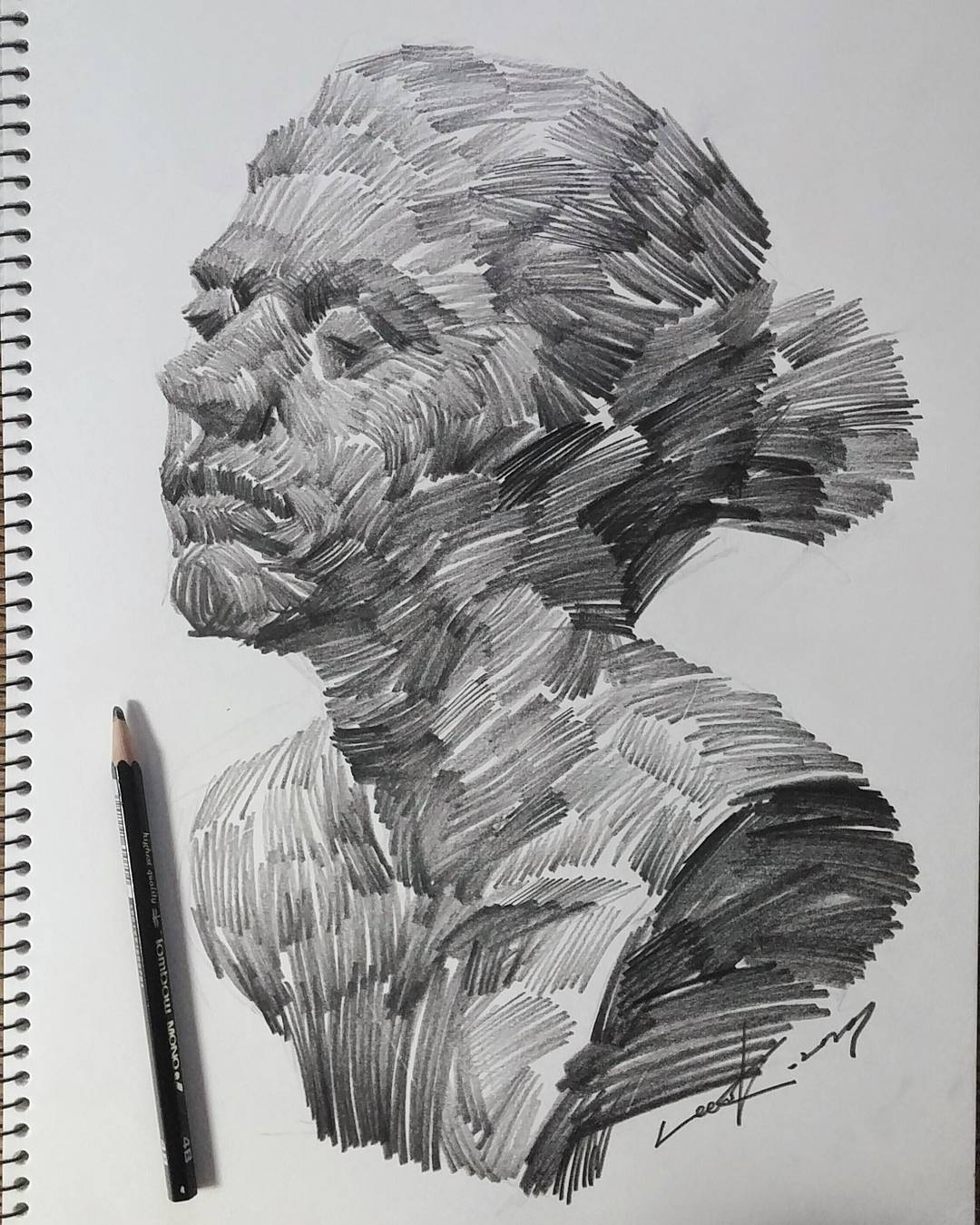Have you ever paused to consider the simple elegance of a pencil drawing? The way graphite glides across paper, transforming blank space into something meaningful, is a quiet kind of magic. In this exploration, we'll delve into the realm of exceptional pencil art, uncovering what makes a drawing truly stand out and how this seemingly basic medium can yield such breathtaking results.
The appeal of pencil drawings lies in their accessibility and expressive potential. Anyone can pick up a pencil and begin to create. Yet, within this simplicity lies a vast spectrum of techniques, from delicate shading to bold lines, allowing artists to achieve incredible realism or explore abstract concepts.
Pencil drawing has a rich history, dating back centuries to rudimentary sketches used for planning and documentation. Over time, it evolved into a recognized art form, with masters like Leonardo da Vinci utilizing the medium for studies and finished works. The tools themselves have also progressed, from basic charcoal sticks to the refined graphite pencils we use today, broadening the possibilities for artists.
A truly exceptional pencil drawing often captures more than just the subject matter; it evokes emotion, tells a story, and reveals the artist's unique perspective. It’s the careful attention to detail, the skillful manipulation of light and shadow, and the ability to breathe life into the drawing that sets apart the very best from the rest. Mastering these aspects is an ongoing journey for every artist, a constant exploration of technique and vision.
The subtle nuances achieved with varying pencil grades, from the hard, light lines of an H pencil to the rich, dark strokes of a 9B, contribute significantly to the depth and realism of a drawing. Understanding these gradations and how to utilize them effectively is essential for creating dynamic and captivating pencil artwork.
Pencil drawing provides unique benefits. It’s an accessible art form, requiring minimal materials. It’s also highly versatile, allowing for a wide range of styles and subject matter. Furthermore, it cultivates patience and observation, encouraging artists to carefully study their subjects and translate those observations onto paper.
Creating exceptional pencil art is a process of continuous learning and refinement. Start with basic shapes and shading techniques. Practice drawing from life, focusing on observing the interplay of light and shadow. Experiment with different pencil grades and explore various techniques, such as hatching and cross-hatching, to build texture and depth.
One can find inspiration and guidance through online resources, books, and workshops dedicated to pencil drawing. These resources can offer valuable insights into techniques, composition, and developing your artistic style. Many artists share their processes and tips online, providing a wealth of knowledge for those seeking to improve their skills.
For a budding artist, capturing the intricacies of light and shadow can be a real challenge. A helpful approach is to squint at the subject, simplifying the values into light and dark areas. This allows for a clearer understanding of how light shapes the form and makes it easier to translate onto paper.
Common questions about pencil drawing include inquiries about suitable paper types, recommended pencil brands, techniques for achieving realism, and strategies for overcoming creative blocks. Exploring these questions through various resources and experimenting with different approaches can lead to greater understanding and skill development.
A tip for creating exceptional pencil art is to embrace the power of subtle variations in value. Even small changes in shading can create a sense of depth and dimension, bringing the drawing to life. Don't be afraid to experiment and push the boundaries of your technique.
In conclusion, the world of pencil drawing offers a captivating journey of artistic exploration. From the simplest sketch to the most intricate masterpiece, the power of this accessible medium is undeniable. By understanding its history, embracing its versatility, and continually refining our skills, we can unlock the true potential of pencil art and create drawings that inspire and endure. Pick up a pencil, embrace the quiet power of graphite, and embark on your own creative adventure. Whether you are a seasoned artist or just beginning your journey, the world of pencil art awaits your unique vision and expression. The key lies in consistent practice, careful observation, and a willingness to explore the endless possibilities this timeless medium offers.
Drawing Sketch Images: A Step - The Brass Coq
Find this Pin and more on drawing. - The Brass Coq
best pencil art drawings - The Brass Coq
best pencil art drawings - The Brass Coq
best pencil art drawings - The Brass Coq
best pencil art drawings - The Brass Coq
Pin by Jax Wyatt on Sketchy - The Brass Coq
best pencil art drawings - The Brass Coq
best pencil art drawings - The Brass Coq
best pencil art drawings - The Brass Coq
How to draw anime - The Brass Coq
Printable Sketches For Painting - The Brass Coq
best pencil art drawings - The Brass Coq
best pencil art drawings - The Brass Coq
best pencil art drawings - The Brass Coq













